- Home
- Alex Scarrow
TimeRiders: The Infinity Cage (book 9)
TimeRiders: The Infinity Cage (book 9) Read online
Contents
Prologue
Chapter 1
Chapter 2
Chapter 3
Chapter 4
Chapter 5
Chapter 6
Chapter 7
Chapter 8
Chapter 9
Chapter 10
Chapter 11
Chapter 12
Chapter 13
Chapter 14
Chapter 15
Chapter 16
Chapter 17
Chapter 18
Chapter 19
Chapter 20
Chapter 21
Chapter 22
Chapter 23
Chapter 24
Chapter 25
Chapter 26
Chapter 27
Chapter 28
Chapter 29
Chapter 30
Chapter 31
Chapter 32
Chapter 33
Chapter 34
Chapter 35
Chapter 36
Chapter 37
Chapter 38
Chapter 39
Chapter 40
Chapter 41
Chapter 42
Chapter 43
Chapter 44
Chapter 45
Chapter 46
Chapter 47
Chapter 48
Chapter 49
Chapter 50
Chapter 51
Chapter 52
Chapter 53
Chapter 54
Chapter 55
Chapter 56
Chapter 57
Chapter 58
Chapter 59
Chapter 60
ALEX SCARROW used to be a graphic artist, then he decided to be a computer-games designer. Finally, he grew up and became an author. He has written a number of successful thrillers and several screenplays, but it’s YA fiction that has allowed him to really have fun with the ideas and concepts he was playing around with when designing games.
He currently lives in Norwich with his family.
Books by Alex Scarrow
TimeRiders
TimeRiders: Day of the Predator
TimeRiders: The Doomsday Code
TimeRiders: The Eternal War
TimeRiders: Gates of Rome
TimeRiders: City of Shadows
TimeRiders: The Pirate Kings
TimeRiders: The Mayan Prophecy
TimeRiders: The Infinity Cage
Sign up to become a TimeRider at:
www.time-riders.co.uk
I dedicate this last book to three teenagers I’ve grown to love as my own children. They live on in my head (yapping away even when I’m trying to get some sleep).
To Maddy, Liam and Sal
PUFFIN BOOKS
Praise for TimeRiders:
‘A thriller full of spectacular effects’
– Guardian
‘Insanely exciting, nail-biting stuff’
– Independent on Sunday
‘This is a novel that is as addictive as any computer game’
– Waterstone’s Books Quarterly
‘Promises to be a big hit’
– Irish News
‘A thrilling adventure that hurtles across time and place at breakneck speed’
– Lovereading4kids.co.uk
‘Plenty of fast-paced action … this is a real page-turner’
– WriteAway.org.uk
‘A great read that will appeal to both boys and girls … you’ll find this book addictive!’
– Redhouse.co.uk
‘Contender for best science-fiction book of the year … an absolute winner’
– Flipside
Winner of the Older Readers category,
Red House Children’s Book Award 2011
Prologue
2044, Chicago
Waldstein stared out through the wire mesh of the displacement cage. In the dimly lit space of the abandoned warehouse, he could see the first two rows of the plastic bucket chairs he’d set out and, sitting on them, the tech journalists he’d personally invited to attend tonight’s demonstration.
Wide-eyed and utterly bewildered by his presentation thus far. All of them.
They think I’m insane. Worse than that, he suspected they thought he’d invited them here this evening to witness some crazy old loon fry himself in his own electric cage. There seemed to be a lot of loons these days, like the woman who’d invited several digi-networks to film her setting herself on fire for world peace.
As the power generator beside his cage began to hum with the build-up of stored energy, getting ready to discharge itself and electrify the entire mesh, his eyes met one of them, a female journalist. She was shaking her head frantically, mouthing …
‘Don’t do this … please … for God’s sake, don’t do this.’
He smiled at her. ‘I’m going to be fine,’ he called out, but his words were lost beneath the increasing hum and the growing murmur of concern and disquiet among the small audience.
I’m going home. I’m going to see them again.
The countdown on his watch reached zero, and the building hum from the generator suddenly became a crackling discharge. Sparks showered around the cage, cascading down on to him from the mesh roof above, stinging his cheeks, his hands, his neck.
I’m going home.
Home.
Home, to that morning: 18 February 2028. To that precious breakfast-time; a low winter sun streaming into their small kitchen through a fogged window, piercing its way through a half-drawn venetian blind, dancing dust motes trapped in shafts of light and a small table for three striped by ladder lines of light and shadow. A twist of steam from a teapot spout, curling lazily in the sun. A haze of tangy toast smoke hanging like swamp mist above them. Gabriel’s contented chuckling as he sucked on a plastic spoon. In the background, a digi-news station waffling about a troubled world. A world so far away from this – their cosy little family bubble.
He remembered that last time together. Eleanor had pushed the kitchen stool back and got up, finishing the dregs of her tea. Lifted their son from his booster chair and wiped away the smear of food from his cheeks.
‘I’m running so late, Ro’,’ she’d said. ‘I’ve really got to scoot.’
And that was it, pretty much: their final precious moment. The last time he’d see his son alive and the last few words he was ever going to exchange with his wife.
And, Christ, what had he said? Something loving? Something profound? Something poetic? Gentle? Intimate? No.
‘Don’t forget, we’re completely out of soyo-milk.’ Had he even bothered to look up from the physics paper he was reading? No. He didn’t think so.
She’d leaned over and planted a kiss on his rumpled forehead. ‘You need a cut, by the way. Your hair’s looking wild and woolly again.’
She’d turned with Gabriel on her hip, who was burbling his version of Goodbye, Daddy, I’m off to playschool. She’d stood in the doorway, turned and smiled at him. ‘Don’t stay in all day, Ro’. It’s lovely out there. Get some daylight. Feel a bit of sun on your face, OK?’
Then she was gone.
Now Waldstein felt the hairs all over his arms lifting. His same wild hair, even wilder now, lifted by the currents of static electricity. Through the showering sparks he caught one last glimpse of the female journalist, out of her chair now and hurrying forward, begging him to stop this stunt before he killed himself. She was almost right up to the cage …
Then it all vanished. No warning. Just. Gone. Replaced by a bland whiteness and silence. He sensed weightlessness and wondered whether he was floating or falling.
Is this it? A transition through dimensions? Or did
I just kill myself?
The white seemed endless, utterly featureless. For the briefest moment Waldstein allowed himself to hope that, perhaps, he’d been so very wrong. That a lifetime of scoffing disbelief in something so naive and wistful as the notion of an afterlife … a heaven … had just been the blinkered myopia of a scientist. That Eleanor would emerge out of this mist, whole, intact, no longer torn in half by the accident, her cheeks spattered with the ink spots of her own dried blood. And Gabriel, once again balanced on her hip, burbling his own language.
If not that, then he wasn’t dead. This wasn’t Heaven. He’d been successful and managed to punch a hole through the Cartesian axes and was now floating in some ‘other’, in dimensional transit. Any second now he was going to appear back in their old apartment in Brooklyn.
Eleanor would be there, still sat finishing her toast and yet to stand up and tell him she was running late. And this time he’d put down that damned science paper, look into her eyes and tell her that he loved her. And, yes, he was going to be strong … he absolutely must resist the temptation to change things, to suggest she should not go to work this morning (so the automated freighter pod that was due to plough into the side of her e-Car and cut her clean in half would pass on its way without incident).
Right then he decided he’d be quite happy with either: this being Heaven, or having that second chance to tell her he loved her.
The mist stirred, like breath on a spider’s web. He sensed shifting densities, could now perceive a depth to it. Through veils of white, as frail and immaterial as the finest linen, he thought he could make out something just a little more substantial drawing closer to him.
‘Hello?’ His voice sounded suppressed. Blanketed. Smothered. As if the sound had carried no more than a few inches from his mouth, then evaporated. ‘Who is that?’
‘Roald …’ A thin voice. A whisper. Certainly not Ellie’s.
The something drawing closer to him seemed to lack a clear outline. One moment possibly a human figure, the next elongated like an eel. Then an ethereal wisp of smoke disintegrating and re-forming again.
‘Roald … We know who you are …’
‘Who is that?!’ Waldstein heard the shrill pitch of terror in his own muffled voice. Almost feminine in tone. He wanted to sound more commanding. ‘Who are you?’
Just then he felt something firm beneath his feet. Solid ground. Gravity seemed to have returned to this white no-place. Then the mist itself suddenly vanished.
He found himself standing in a small kitchenette bathed with morning sunlight, which streamed in through a venetian blind.
‘I did it. I’m home,’ he whispered. ‘I’m finally home.’
Eleanor looked up at him and smiled as she stirred the last of their son’s breakfast in a plastic bowl. Here they both were. Ellie for real, not a software simulation. But flesh-and-blood real. And his beautiful son. The sunlight made the fine blond baby-hair fuzz on the top of his head glow. The warmth of the sun coming in, the cosy fug of the kitchen, the smell of lightly burnt toast and milk-soaked rusks; it was all too much for him. Too much.
He buried his face in his hands and began to cry.
‘Roald … we need to talk.’ A soft voice, almost that of a woman’s. But not Ellie’s.
He looked up.
‘Roald Waldstein … we need to talk.’ The voice seemed to have come from his baby son. Gabriel had twisted in his booster seat towards him and was staring at him intently, small pudgy hands palm-flat on the table in front of him.
‘This is a pocket of reality that we have temporarily borrowed so that we can talk to you.’
Waldstein looked at the moving lips of his son. The words, impossibly coming out of his mouth, were slurred and delivered in a clumsy, laboured way, limited by the small unpractised muscles.
He shook his head. Struggling to rationalize this. Not Heaven. Certainly he wasn’t back home. Was this a dream, then? A hallucination? Was he now lying on a hospital gurney being worked on by a crash team trying to revive him?
‘This is only a temporary reality, Roald. An isolated pocket of higher-dimension space–time. We duplicated the destination that you intended to arrive at.’
He couldn’t take his eyes off Gabriel’s lips. ‘Who … who …?’
‘Who are we?’ Gabriel smiled. ‘Those that care.’
Waldstein looked around the small kitchen. So real. There, stuck to the fridge door, were the plastic farmyard-animal magnets Gabriel liked to play with. On the counter, Ellie’s touch-screen recipe tablet, beside it the old-fashioned moleskin notebook in which she hand-wrote her shopping lists.
‘Those that care?’ That meant absolutely nothing to him. ‘Who are you?’
‘You can call us … the Caretakers.’
‘I … I … are you –’
‘Roald, this is our chance to warn you.’
‘Warn me? About what?’
‘About time travel. You are the first human to turn this dangerous theory into a very dangerous reality.’ Gabriel’s eyes narrowed. ‘You’re not the only species to have stumbled upon this technology … there have been others before. When we detect the unique signature of this technology, we come.’
‘You … you’re talking about … tachyon particles?’
Gabriel nodded. ‘They’re the telltale first sign. What we look out for. And we come, always, with the same message, with the very same warning.’
The shockingly adult expression on his son’s infant face melted away. It was Gabriel once more, his hands patting the table impatiently, fumbling at the plastic bowl.
Eleanor spoke to him now. ‘Time travel is an open door to dimensions beyond your comprehension. To a destructive energy that can destroy everything. Not just this world but this universe. It is corrosive; the more often it happens, Roald, the more vulnerable we all are.’
Eleanor stopped stirring Gabriel’s mushed-rusk breakfast. She looked up at him with her intense grey eyes. Just then she looked every bit as beautiful as that very first time their eyes had met across the noisy chaos of a street-food fair. Beautiful. But now, with some other intelligence behind them, terrifying.
‘We present an ultimatum. The strictest possible ultimatum. This technology cannot be used. We cannot allow it to develop any further, to spread …’ She smiled sadly at him. ‘We know why you worked so hard on your device. To see your loved ones again. Perhaps to alter events so that they would live. But, Roald, history has a way it is supposed to go. There are no choices in this matter.’
‘All I want … ever wanted … was to be with you … with her, again.’
‘I know.’ She shook her head slowly. ‘That can’t be. I’m sorry. Our ultimatum is strict. It has to be.’ She got up and came round the table towards him. ‘It has to stop. Or we will have no choice in the matter.’ She took one of his hands and held it gently, stroking his knuckles with her thumb. ‘We don’t do this lightly, Roald. We’re not monsters.’
‘Do … do what?’
He noted tears in her eyes. ‘Extermination, Ro’. The complete annihilation of your species, your entire world. Everything. We’ll leave behind no trace that this world ever existed. There’ll be nothing but dust.’
He felt his scalp suddenly prickle with dawning realization. This one flight of fancy, this one fool’s errand into the past …?
God help me. God help me. What have I gone and done?
‘But, Roald, it’s not too late. That can be avoided. It can.’ She squeezed his hand. ‘There is a chance that we won’t be forced to do this. We’ve seen a way through. And, believe me, we don’t want to wipe out life if we can avoid it. Life is so very precious.’ She stared at him intently. ‘Roald … you can help us save humanity.’
CHAPTER 1
1890, Albert Docks, Liverpool
So now look at me. I find myself writing all my thoughts down like Sal once used to do. In the very same notebook, as it happens. Every now and then I flip back through the dog-eared pages and find
solid blocks of her tidy, tiny writing and read some of it and remember the moments she was writing about; as clear as yesterday, they seem to me.

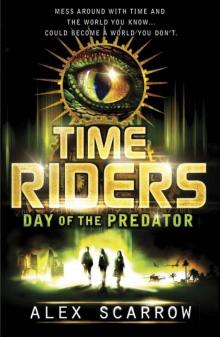 Day of the Predator
Day of the Predator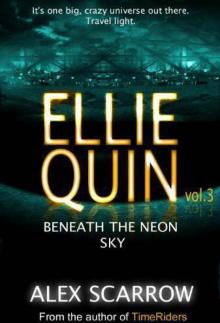 Ellie Quin Book 3: Beneath the Neon Sky
Ellie Quin Book 3: Beneath the Neon Sky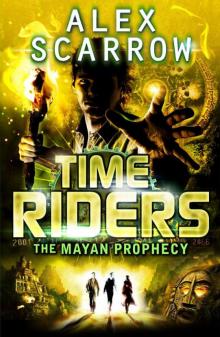 The Mayan Prophecy
The Mayan Prophecy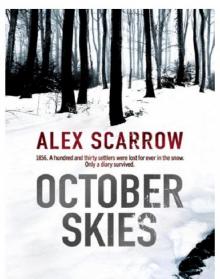 October Skies
October Skies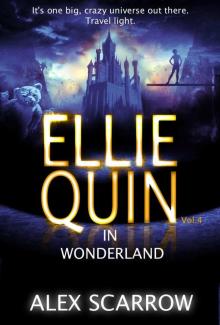 Ellie Quin Episode 4: Ellie Quin in WonderLand (The Ellie Quin Series)
Ellie Quin Episode 4: Ellie Quin in WonderLand (The Ellie Quin Series)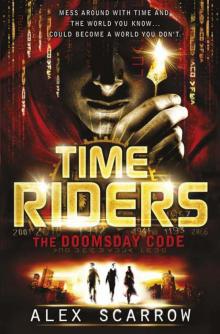 Time Riders
Time Riders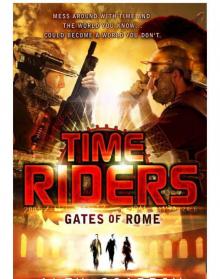 Gates of Rome
Gates of Rome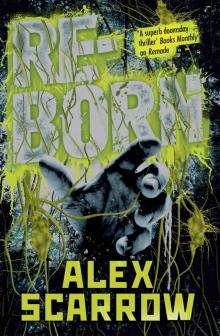 Reborn
Reborn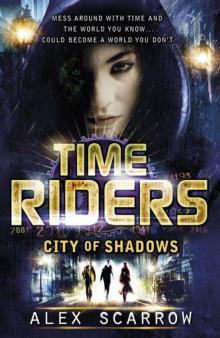 City of Shadows
City of Shadows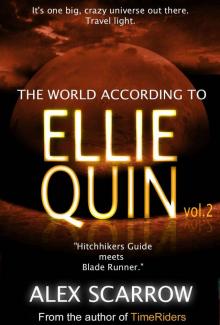 Ellie Quin Book 2: The World According to Ellie Quin (The Ellie Quin Series)
Ellie Quin Book 2: The World According to Ellie Quin (The Ellie Quin Series)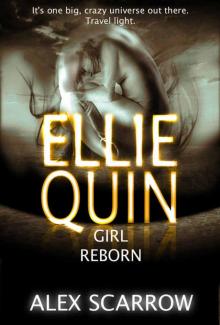 Ellie Quin Episode 5: A Girl Reborn
Ellie Quin Episode 5: A Girl Reborn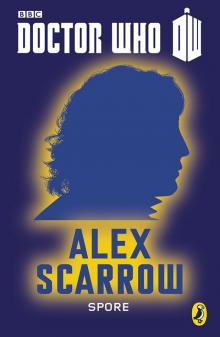 Spore
Spore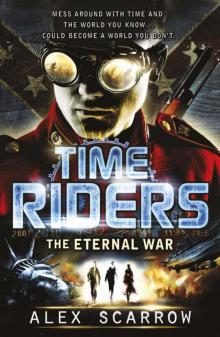 The Eternal War
The Eternal War Last Light
Last Light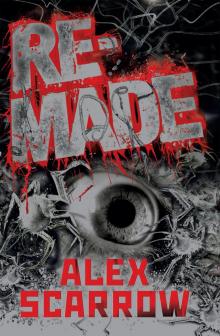 Remade
Remade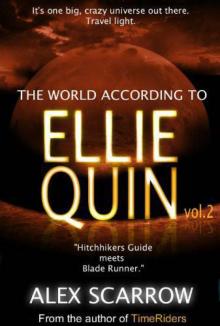 Ellie Quin Book 2: The World According to Ellie Quin
Ellie Quin Book 2: The World According to Ellie Quin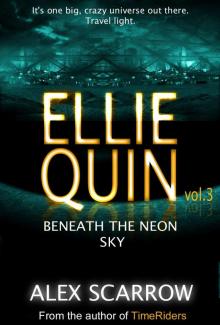 Ellie Quin Book 3: Beneath the Neon Sky (The Ellie Quin Series)
Ellie Quin Book 3: Beneath the Neon Sky (The Ellie Quin Series)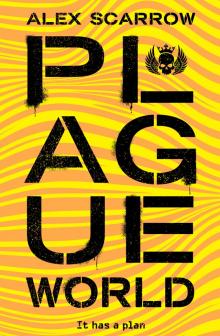 Plague World
Plague World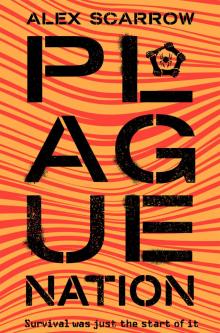 Plague Nation
Plague Nation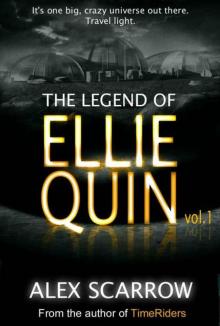 Ellie Quin Book 01: The Legend of Ellie Quin
Ellie Quin Book 01: The Legend of Ellie Quin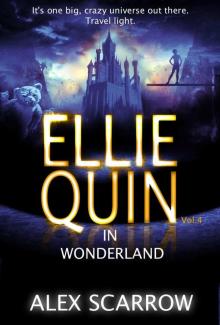 Ellie Quin - 04 - Ellie Quin in WonderLand
Ellie Quin - 04 - Ellie Quin in WonderLand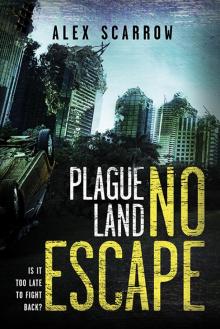 No Escape
No Escape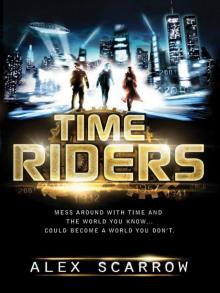 TimeRiders
TimeRiders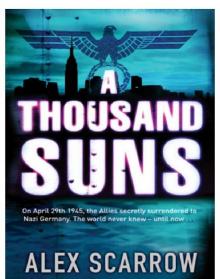 A Thousand Suns
A Thousand Suns The Candle Man
The Candle Man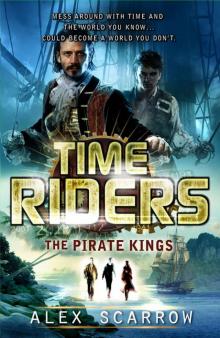 The Pirate Kings
The Pirate Kings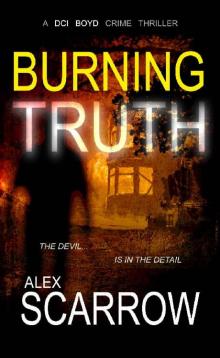 Burning Truth: An Edge-0f-The-Seat British Crime Thriller (DCI BOYD CRIME THRILLERS Book3) (DCI BOYD CRIME SERIES)
Burning Truth: An Edge-0f-The-Seat British Crime Thriller (DCI BOYD CRIME THRILLERS Book3) (DCI BOYD CRIME SERIES)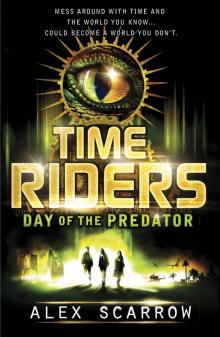 Day of the Predator tr-2
Day of the Predator tr-2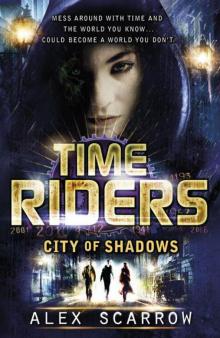 City of Shadows tr-6
City of Shadows tr-6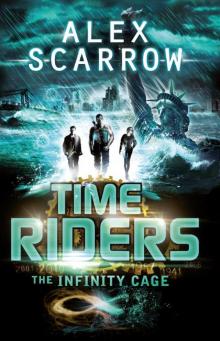 TimeRiders: The Infinity Cage (book 9)
TimeRiders: The Infinity Cage (book 9)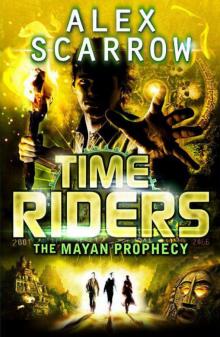 The mayan prophecy (Timeriders # 8)
The mayan prophecy (Timeriders # 8)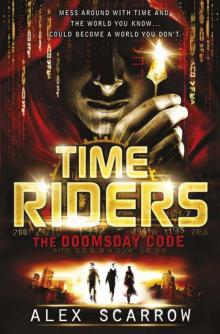 TimeRiders: The Doomsday Code (Book 3)
TimeRiders: The Doomsday Code (Book 3)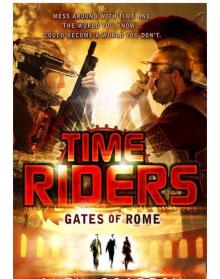 Gates of Rome tr-5
Gates of Rome tr-5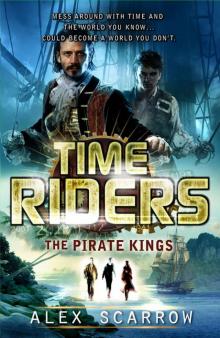 TimeRiders: The Pirate Kings (Book 7)
TimeRiders: The Pirate Kings (Book 7)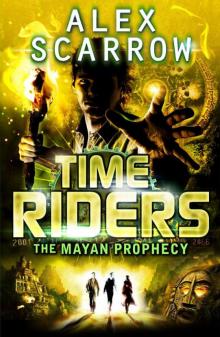 TimeRiders: The Mayan Prophecy (Book 8)
TimeRiders: The Mayan Prophecy (Book 8)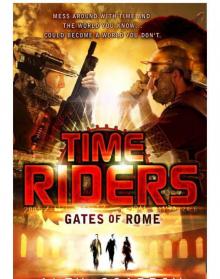 TimeRiders 05 - Gates of Rome
TimeRiders 05 - Gates of Rome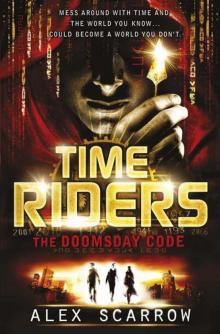 The Doomsday Code tr-3
The Doomsday Code tr-3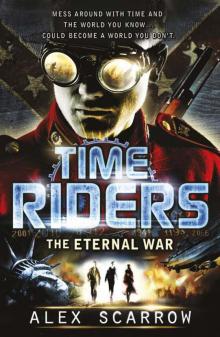 The Eternal War tr-4
The Eternal War tr-4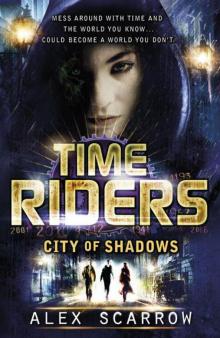 TimeRiders: City of Shadows (Book 6)
TimeRiders: City of Shadows (Book 6)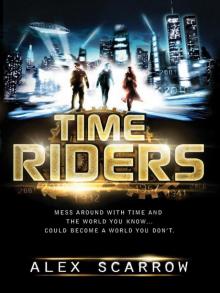 Time Riders tr-1
Time Riders tr-1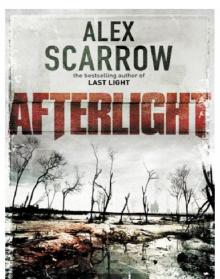 Afterlight
Afterlight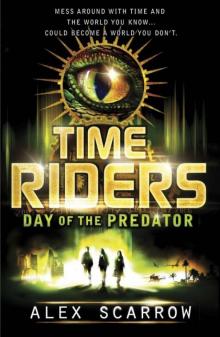 TimeRiders, Day of the Predator
TimeRiders, Day of the Predator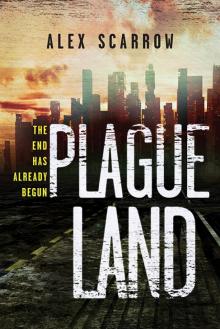 Plague Land Series, Book 1
Plague Land Series, Book 1